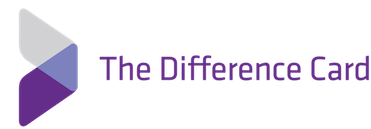
As employer healthcare costs continue to rise practically unabated year-over-year, companies are increasingly turning to self funded health plans to take a more active role in the health of their employees and its effect on the bottom line.
That trend underscores the old adage that every CEO is the healthcare business and has led to the emergence of workforce health management companies like San Francisco-based Collective Health
Launched in 2013, the company provides its self-funded employer customers a tech-enabled benefits platform that directs workers toward more effective and less expensive services and care options. Since its founding Collective Health has raised around $230 million, including $110 million earlier this year, from investors like Google Ventures, NEA and Founders Fund.
While healthcare costs for employees have risen around 5 percent for the past few years, Collective Health clients actually saw their medical trend decrease by 0.3 percent from 2016 and 2017.
The 500-person company says by making healthcare easier to access and understand, they’ve been able to decrease specialist visits and advanced imaging services, while boosting telemedicine and behavioral healthcare usage rates.
One major part of Collective Health’s model is its in-house concierge support team, which it positions as part of an effort to build trust between employees and the company.
Collective Health’s effort to better manage healthcare spend and direct workers to tech-enabled solutions to receive care has even been pointed to as a potential model for the healthcare collaboration between Amazon, J.P. Morgan and Berkshire Hathaway.
Moving into 2019, the company is boasting a 100 percent renewal rate among customers and more than 200,000 members across 45 companies including Pinterest, Uber and Zendesk.
Collective Health isn’t alone in the market and large competitors include companies like Pennsylvania-based Accolade and fellow San Francisco company Castlight Health, all of which are using sophisticated data infrastructures to employers manage healthcare costs.
“When we set out five years ago, we had a hypothesis that by applying the latest enterprise software technology and user experience design, we could empower American employers to take the reins of their $1.2 trillion in annual healthcare spend,” said Collective Health CEO Ali Diab in a statement.
“Employers recognize the power and value that our modern technology platform and large-scale data science capabilities provide, including the flexibility and transparency they need to deliver an unmatched health benefits experience to their people, while making their employee healthcare budgets go as far as they possibly can.”
Evangeline Mendiola, global head of benefits for Zendesk, said that the company chose Collective Health as a partner to ease its transition to a self-funded model, which can be difficult to handle administratively.
She touted Collective’s ability to easily give visibility into healthcare cost trends and claims patterns for her team, while also having a great experience for employees.
“Let’s be honest, health care in general is very difficult to navigate. With their portal and member care advocates that answer questions for employees, our workers feel well supported,” Mendiola said in an interview.
The platform has been a boon for Mendiola’s team which only has three employees, but manages benefits for more than 1,000 workers.
From an employer side, Mendiola said having that having a population health perspective on the workforce can lead to developing benefit programs that are more relevant for workers. As an example, she said an uptick in maternity claims led to a broadening of family and parental leave policies.
One function Collective Health’s platform has is to essentially act as a network and access point for the myriad point solutions that exist to address specific healthcare needs.
To date, the company has more than 140 of these health partnerships, and Diab has spoken about creating a best-in-class collection of these technologies to offer to employers.
In order to help sustain its growth across the country, Collective Health is also opening a third Salt Lake City office early in 2019 and plans to eventually employ a few hundred employees at the location.
Photo: adventtr, Getty Images










